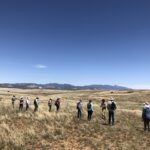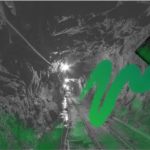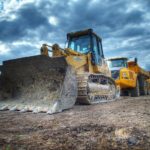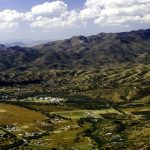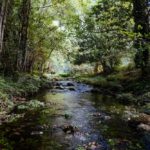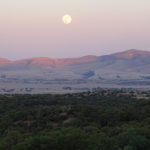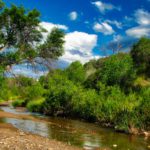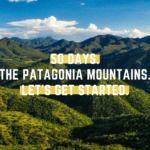May 14, 2012 | Blog
One of those stories that caught our attention was the sudden and immediate departure of Arizona Mining Inc / Wildcat Silver (TSX:AZ) President and CEO Christopher M Jones, announced in a Arizona Mining Inc / Wildcat Silver press release dated May 7, 2012. Board members Richard Warke will assume CEO duties and Donald Taylor, will become President and Chief Operating Officer as well as continuing in their current duties.
You might remember Warke from other news. He is also on the Board of Directors for Augusta Resource (TSX/NYSE:AZC), the company that owns Rosemont Copper. He’s one of 2 men that Save the Scenic Santa Ritas called for investigations by U.S. and Canadian securities regulators, the Arizona Corporation Commission, and the Arizona Attorney General for failure to disclose past bankruptcy.
By the way, Augusta and Arizona Mining Inc / Wildcat Silver are closely related. In addition to Warke, they share 4 other Board members. They also list the same corporate office address, #400 – 837 Hastings St. Vancouver, BC.
It seems extremely odd that if all is going well, why the sudden departure of Chris Jones, President and CEO of Arizona Mining Inc / Wildcat Silver without a new replacement. Another interesting coincidence is that Augusta/Rosemont Copper also had a change at the top just two days later. Augusta announced the retirement of Raghunath Reddy as CFO in a press release dated May 9, 2012.
Two top level executives leaving the Augusta/Wildcat family within two days of each other seems peculiar to us. What about to you? We suppose that the reaction of the investors to this news will tell us more.

May 12, 2012 | Blog

Masquerading as a bill about “strategic and critical minerals,” HR 4402 takes the nation’s top toxic polluter, the hardrock mining industry, and strips away key protections for public health, water and communities.
The current law that governs hardrock mining on public lands already allows for open access to mineral resources – for free. Under the 1872 Mining Law, gold, copper, silver and uranium are mined by multinational corporations without any return to the owner of the mineral, the taxpayer. Mining is also considered the “highest and best use” of public lands. As such, federal land managers cannot, and do not, deny mine proposals. In addition to the inadequacies of this antiquated law, the mining industry is also exempt from key provisions of some of our most important environmental laws, like the Clean Water Act.
HR 4402 makes the current environmental threats posed by hardrock mining worse. By truncating the permitting process and effectively eliminating meaningful environmental review, this legislation threatens water resources across the United States and limits the ability of mining-impacted communities to protect their land, water and health.
Mining at Any Cost
This bill allows federal agencies to exempt mining projects from review under the National Environmental Policy Act of 1969 (NEPA). NEPA makes sure that in addition to government and industry input, everyday citizens can take part in the development and oversight of projects that affect our social, economic, and environmental health.
This legislation would run roughshod over the values of transparency and public participation that are at the heart of NEPA, the process that has allowed us to find out one of the most disturbing statistics about the nature of hardrock mines: 75% of them end up polluting surrounding surface or groundwater, in spite of this environmental review.
HR 4402 caps the length of the permit process to just 30 months and allows regulators to exempt mining projects from the Equal Access to Justice Act (EAJA) as well. EAJA is legislation that makes nonprofit environmental law firms possible, which allows average Americans to protect their communities and families from pollution. Impacted communities often cannot afford lawyers, much less the litany of scientific and technical experts needed to mount a serious challenge to a multinational mining company.
A Better Way
Disenfranchising rural communities and polluting western waters is not a solution. In addition to research on recycling and alternative, sustainable sources for metals, 1872 Mining Law reform is needed to protect some of our most precious resources. HR 4402 takes us in the wrong direction. The hardrock mining industry should be clamoring to lead the world in better mining practices, not catering to the lowest common denominator.
Oppose this bill now!
http://www.earthworksaction.org/
Dec 22, 2011 | Blog
FOR IMMEDIATE RELEASE
Hardshell exploratory drilling threatens endangered wildlife on Coronado National Forest
Conservation groups challenge project
TUCSON, Ariz.—A coalition of conservation groups has gone to court seeking a timeout on construction of the Hardshell Project on the Coronado National Forest in southern Arizona today. The groups are challenging the U.S. Forest Service for approving exploratory mineral drilling for a planned 3,000-acre mine without required studies of how it will impact endangered wildlife and the environment.
“The Forest Service appears to have pulled a fast one on this project by approving it without first assessing its environmental impact. There’s no way to expand industrial mining activities here without causing irreversible damage to wildlife,” said Craig Miller, Defenders of Wildlife’s Southwest representative. “When you take a broad view of all the industrial mining projects the Forest Service is allowing in this area, it’s alarming that it’s being done without considering impacts on our wildlife and wild places. It’s especially serious for endangered animals like the jaguar, whose survival depends on land managers ensuring that a few wild places like the Patagonia Mountains remain intact.”
The Hardshell Project site threatens habitat for endangered Mexican spotted owls, lesser long-nosed bats, and could cut off key migration corridors for ocelots and jaguars. Yet, the ForestService approved the project after waiving the need for analyzing its environmental impact based upon groundless assumption that the drilling would have no significant environmental effects.
“The Coronado National Forest is located within the heart of the Sky Island region, one of the most ecologically diverse spots in the world,” said Jenny Neeley, conservation policy director for Sky Island Alliance. “This project will likely degrade important wildlife habitat and disrupt a critical movement corridor for the jaguar and ocelot, which are known to roam this area. The ForestService is responsible for sustaining the unique biodiversity of this region, and as part of this responsibility it is required to take a hard look at the long-term impacts of this project before allowing it to move forward.”
The groups are asking the courts to put the project on hold until the Forest Service undertakes a thorough environmental review of its impacts.
“We want the Forest Service to give this proposed drilling project the serious consideration it is due,” said Wendy Russell with the Patagonia Area Resource Alliance. “A large part of our economy depends on tourism to these wild places. More important, the project is sited along Harshaw Creek, a major source of water for the town of Patagonia. We hope the court recognizes the importance of putting this project on hold until theForest Service does the proper analysis.”
Link to Complaint
###
Contacts:
James Navarro, Defenders of Wildlife, (202) 772-0247; jnavarro@defenders.org
Jenny Neeley, Sky Island Alliance, (520) 624-7080 x13; Jenny@skyislandalliance.org
Defenders of Wildlife is dedicated to the protection of all native animals and plants in their natural communities. With more than 1 million members and activists, Defenders of Wildlife is a leading advocate for innovative solutions to safeguard our wildlife heritage for generations to come. For more information, visit www.defenders.org.
Sky Island Alliance is a grassroots non-profit organization dedicated to the protection and restoration of the rich natural heritage of native species and habitats in the Sky Island region of the southwestern United States and northwestern Mexico. For 20 years, SIA has worked with volunteers, scientists, landowners, public officials, and government agencies to establish protected areas, restore healthy landscapes, and promote public appreciation of the region’s unique biological diversity.
The Patagonia Area Resource Alliance is an unincorporated association of volunteer community members dedicated to protecting and preserving the Patagonia, Arizona area. PARA is a watchdog organization that monitors the activities of industrial developers such as mining corporations, as well as government agencies, to make sure their actions have long- term, sustainable benefits to our public lands, our watershed, and our town. PARA is also committed to outreach and education within our community on the potential negative impacts hard rock mining could have on our surrounding ecosystems and to our growing eco-tourism based economy.


